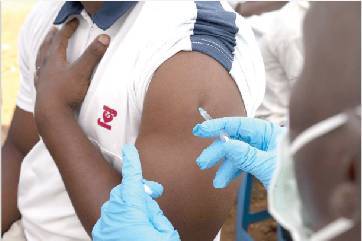Childhood regression spikes during Covid-19 pandemic

Little ones are naturally motivated to move forward in their development. They enjoy exploring and mastering challenging tasks. So, when they slip back into old behaviour or seemingly lose skills they once mastered, this is a cause for alarm.
Terry Atieno’s four-year-old daughter, Taji, joined school last year in January. Two-and-a-half months later, Covid-19 hit and she had to embrace home schooling. When the schools re-opened, she noted a worrying behaviour.
“Taji started peeing on the couch while watching television at home. What was that about?
I was both shocked and pissed off. I wanted to beat her a little, but I saw how scared she was and instead, just calmed her down and asked her not to do it again. This did not stop immediately though.
She also started to throw tantrums and would run to the balcony crying every time I asked her to stop doing something. She was suddenly rude and spoilt, which is unlike her.
So I was asking myself what might have been amiss, because clearly, there was a problem.
This is not what I expected her to learn at school,” shares the young mother.
Many people who have equally noticed this only advised her to discipline the child by caning to ‘return her back to line.’
What Terry’s child showed were signs of regression – the term used to describe when children step back, or regress, in a skill they had developed or behaviour they had mastered.
Regression is a normal part of childhood development, but in the age of Covid-19, experts say it’s happening in a vast and more widespread way than normal.
Stress and pressure
The pandemic has brought a lot of challenges. Many households are experiencing stress as they grapple with the many changes brought about by the Covid-19 pandemic.
Children have not been left out. The shutdown of schools and day-care facilities brought with it stress as the normal routine of children were interfered with.
Stress and pressure due to a shift or change of environment can be real for children just as much as it is with adult.
And this most of the time manifests through regression. It takes a deeper understanding as many parents barely understand this sudden setback and might even become extremely aggressive while trying to correct the fall back.
Instead of whooping her little daughter for the sudden fallbacks, Terry decided to monitor her closely to see if maybe there was problem at school. She had started worrying there could be a bully at school.
But a few weeks’ later, things went back to normal. She stopped peeing on herself.
The tantrums minimised and she started to learn things at her pace. Terry also made several follow-ups with the class teacher at the school and it seemed her daughter had been having a hard time catching up with the rest of the other pupils at first, but eventually did.
Regression manifestation
“There are so many school going children just like Taji. The pandemic though made regression even more amongst the pupils who had already started school, but had to stay home due to the pandemic.
Children have to grapple with the many changes that have come as a result of the pandemic at home as well as their social and learning interactions. This brings a lot of stress.
As a result, children may have regression. For instance, you will find a child who was already potty trained having several potty accidents, or a child who had started making progress in their speech going back to baby talk.
Regression in children is common, even without the pandemic. It can be triggered if there are significant changes that cause stress in the family such as divorce, disagreements between parents, job losses, and sickness in the family or birth of a sibling,” psychologist Tracy Nyaguthii explains.
Some children had academic regression. Though experts argue that children forget, or unlearn, a portion of what they learned the previous school years during school holidays, the extended stay at home is partly to blame.
Way forward
Nyaguthii shares how regression has become common during the pandemic because children are dealing with heavy emotions as they try to adjust during the pandemic.
When parents are dealing with a child who is exhibiting signs of regression, it is important that the parents approach the situation with patience.
“Continue with reinforcing the previous rules, but avoid harsh methods such as scolding.
The child needs to feel loved and secure. Parents also need to ensure there is structure.
Children need structure to adjust to the new normal, because structure creates predictability.
Having daily routines will help reset the daily rhythm of a child such as eating time, bath time, sleeping time. It is also important to constantly reassure them that they are safe,” she says.
In addition to this, Nyaguthii says that children tend to mirror their parents’ behaviours or emotion, for instance if a parent is stressed, a child will pick up the stress and start acting out like they are stressed.
“It is important that parents take care of themselves; be kind and practice self-care.
For parents with adolescent children, take time to talk to your children so that you can know how to support them.
Seeing a counsellor can also help the adolescent adjust to the new normal,” she says.














